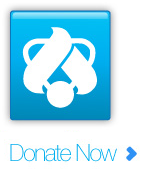This week Israel celebrated its 63rd anniversary. As usual, Memorial Day preceded Independence Day, so before we could indulge in joy about having a state of our own, we remembered in sorrow the 23,000 women and men who have fallen fighting for Israel.
When I was a kid, in the 1950s, the highlight of Independence Day was the military parade. Together with hundreds of thousands of Israelis I waited for hours to see the columns of tanks, fresh from the victorious Sinai Campaign of 1956, and the roaring jets flying-by. When I became a soldier myself, I even marched in one of those parades. Later, my family jokingly reprimanded me for not turning my head and nodding as I passed by them. We were all very proud.
Our military strength was the quintessence of our independence — typical of young states in their formative years, needing constant self-reassurance and the bolstering of nation-building spirit.
Today, our Independence Day is different. Collectively, Israelis watch two events which are spiritual in nature: the International Bible Contest and the awarding of the prestigious Israel Prizes. Individually, Israelis and their families just throw some food on the barbecue grill.
Professor Ruth Gavison, who has won the Israel Prize for her outstanding achievements in the research of law, and who spoke on behalf of the prize recipients, welcomed this change. Then she went on to elaborate on the Israeli vision. Every life-aspiring nation needs a vision, she said, and the Israeli vision had already been crafted by our Founding Fathers, in the 1948 Declaration of Independence.
In essence, she said, this is a vision of “a Jewish state which is open for the gathering of the diasporas but which also maintains full political and social equality for all its citizens; a state in which members of the Arab minority live as partners on the basis of representation and equality; a state whose identity is neither a license for discrimination nor for imposing the rule of religion . . . Israel can and must be Jewish and democratic . . . it is our historic duty to reconcile the conflicting tensions between the different elements of this vision, with listening to the other and with mutual respect.”
In just a few words, this remarkable woman reminded us what Israel is about, or, rather, what Israel should aspire to be: A unifying realm where different groups can amicably pursue their separate goals. Apart from the Arab-Jewish and religious-secular divides, she didn’t forget the social issues either. “Alongside with the quest for personal excellence,” she said, “we must have a generous public social safety net, for those who need it.” Indeed, when I grew up my family was poor, but I didn’t know it, because all my neighbors were like me. Today the socio-economic gaps in Israel are alarming.
Not secluding herself in an ivory tower, Gavison has spent more than a year in a dialogue with Israeli Arabs — one-fifth of Israeli society — on how to live together in a Jewish and democratic state. She spent even more time drafting with Rabbi Yaacov Medan, an Orthodox rabbi, a consensual framework for relations between observant and nonobservant Jews in the country. And she researched the socioeconomic gaps in Israel, coming up with some policy recommendations.
The day after she won the Israeli Prize, Gavison was interviewed on Israel Radio. With good spirit she teased the anchor, for a moment the representative of the cut-throat Israeli media, for always looking at the empty half of the glass. “I have been traveling extensively abroad,” she told him. “Nowhere can you find such abundance of positive energy as in Israel. Criticism is necessary, but let’s not exaggerate with the breast-beating.”
This was a special Independence Day, indeed. It was about vision. We don’t have military parades anymore, but I’m still very proud to be an Israeli.
Uri Dromi is a columnist based in Jerusalem.
When I was a kid, in the 1950s, the highlight of Independence Day was the military parade. Together with hundreds of thousands of Israelis I waited for hours to see the columns of tanks, fresh from the victorious Sinai Campaign of 1956, and the roaring jets flying-by. When I became a soldier myself, I even marched in one of those parades. Later, my family jokingly reprimanded me for not turning my head and nodding as I passed by them. We were all very proud.
Our military strength was the quintessence of our independence — typical of young states in their formative years, needing constant self-reassurance and the bolstering of nation-building spirit.
Today, our Independence Day is different. Collectively, Israelis watch two events which are spiritual in nature: the International Bible Contest and the awarding of the prestigious Israel Prizes. Individually, Israelis and their families just throw some food on the barbecue grill.
Professor Ruth Gavison, who has won the Israel Prize for her outstanding achievements in the research of law, and who spoke on behalf of the prize recipients, welcomed this change. Then she went on to elaborate on the Israeli vision. Every life-aspiring nation needs a vision, she said, and the Israeli vision had already been crafted by our Founding Fathers, in the 1948 Declaration of Independence.
In essence, she said, this is a vision of “a Jewish state which is open for the gathering of the diasporas but which also maintains full political and social equality for all its citizens; a state in which members of the Arab minority live as partners on the basis of representation and equality; a state whose identity is neither a license for discrimination nor for imposing the rule of religion . . . Israel can and must be Jewish and democratic . . . it is our historic duty to reconcile the conflicting tensions between the different elements of this vision, with listening to the other and with mutual respect.”
In just a few words, this remarkable woman reminded us what Israel is about, or, rather, what Israel should aspire to be: A unifying realm where different groups can amicably pursue their separate goals. Apart from the Arab-Jewish and religious-secular divides, she didn’t forget the social issues either. “Alongside with the quest for personal excellence,” she said, “we must have a generous public social safety net, for those who need it.” Indeed, when I grew up my family was poor, but I didn’t know it, because all my neighbors were like me. Today the socio-economic gaps in Israel are alarming.
Not secluding herself in an ivory tower, Gavison has spent more than a year in a dialogue with Israeli Arabs — one-fifth of Israeli society — on how to live together in a Jewish and democratic state. She spent even more time drafting with Rabbi Yaacov Medan, an Orthodox rabbi, a consensual framework for relations between observant and nonobservant Jews in the country. And she researched the socioeconomic gaps in Israel, coming up with some policy recommendations.
The day after she won the Israeli Prize, Gavison was interviewed on Israel Radio. With good spirit she teased the anchor, for a moment the representative of the cut-throat Israeli media, for always looking at the empty half of the glass. “I have been traveling extensively abroad,” she told him. “Nowhere can you find such abundance of positive energy as in Israel. Criticism is necessary, but let’s not exaggerate with the breast-beating.”
This was a special Independence Day, indeed. It was about vision. We don’t have military parades anymore, but I’m still very proud to be an Israeli.
Uri Dromi is a columnist based in Jerusalem.








